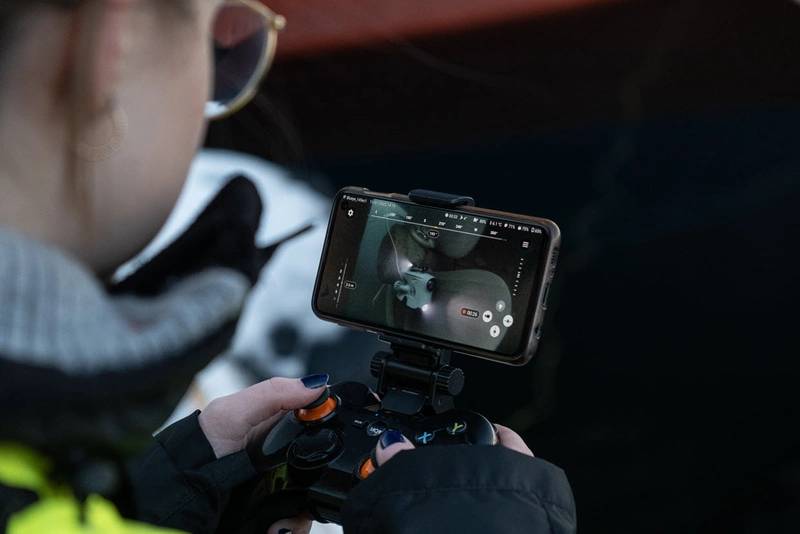This week at Marine Technology News…
Humanity now has more information than it can analyze alone. We need AI to help us, and with the ability to analyze has come automation and then autonomy.
The December issue of Marine Technology Reporter magazine will discuss AI developments including that of Beam which has unveiled an AI-powered AUV designed to be self-driving and independently perform offshore wind inspections, only reporting back at the end of the mission.
Blueye ROVs are now capable of operating without manual control. Before deploying the ROV, the operator can set instructions in the Blueye app, press the start button and then let the ROV take over.
These developments are part of the evolution of subsea technology, and in her latest Deep Dive podcast, Rhonda Moniz talks to industry veteran Vince Capone about the role it has played in his own career. Capone was inspired by Jacques Cousteau as a second grader, developed a love of scuba diving as an undergraduate and went on to a career in subsea technology – primarily sonar.
There was a moment when he realized that he could see more of the ocean bottom in a day of side scan sonar operations than he could in three months of diving. He was sold on technology and took his career in that direction, but he remembers saying: “There’s no way some robot is going to go out there and do my survey for me.”
Moniz points to the enormous volumes of survey data now being collected: “It’s just reams and reams and reams of data, and to have humans go through that is almost nearly impossible.”
We keep finding better ways to gather more data. Sofar Ocean’s new white paper explains how subsea data collection can be streamlined using its Spotter Platform.
Researchers from the National Oceanography Centre are developing a new sensor that will be capable of measuring six biogeochemical, physical and environmental parameters.
There is a purpose: “Sampling our world’s ocean is a formidable challenge, yet understanding more about the marine environment is critical for understanding a wide range of issues that can have local but also global impacts,” said Dr Andrew Morris, project lead. “Marine autonomy is a way to monitor more locations for longer than has previously been possible.”
AI is already being used to make predictions for us about climate change, and this week, Schmidt Sciences announced it will award up to $12 million to 25 scholars working at the forefront of its growing abilities. The aim is to help realize the potential benefits to humanity that AI can bring.
Carla Gomes, information science professor at Cornell University, is one of the researchers to win funding. Gomes is researching current AI limitations for scientific discovery and decision-making by combining symbolic reasoning, deep learning and optimization for high-dimensional reasoning.
Yejin Choi, incoming professor and senior fellow, Stanford University, is another researcher who won funding. Choi develops algorithms so that AI can mimic human values systems.
Our quest for information has led us to this point.
Where will it take us next?
David Autor, economics professor at MIT, wants to know. He is another researcher who won Schmidt Sciences funding, and he researches how people interact with new AI tools and how AI will shape employment in the future.

